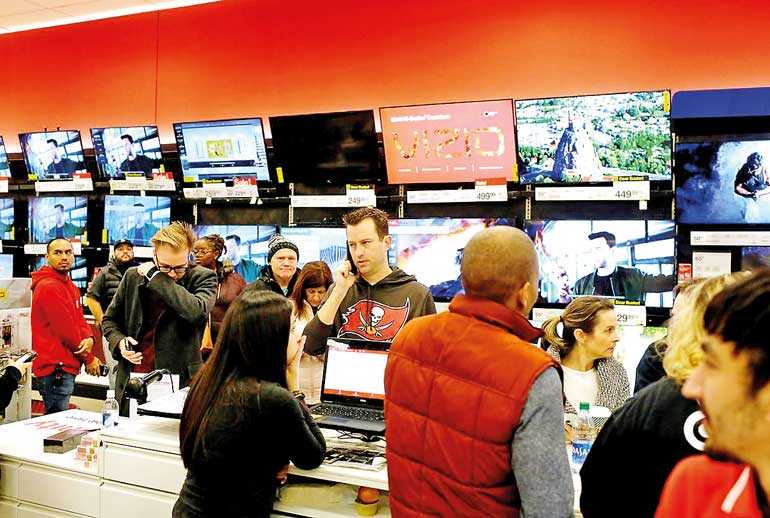Thursday Feb 19, 2026
Thursday Feb 19, 2026
Thursday, 12 December 2019 00:34 - - {{hitsCtrl.values.hits}}

Washington (Reuters): US President Donald Trump has days to decide whether to impose tariffs on nearly $160 billion in Chinese consumer goods just weeks before Christmas, a move that could be unwelcome in both the United States and China.
The White House’s top economic and trade advisers, including Trade Representative Robert Lighthizer, Larry Kudlow, Peter Navarro, and Treasury Secretary Steven Mnuchin are expected to meet in coming days with Trump over that decision, one person briefed on the situation said. There is still no clarity on what the decision will be.
Washington is laying the groundwork for a delay in the latest tariffs, scheduled to take effect on 15 December, but a final decision has not been made, the person told Reuters.
If the White House does allow the 15 December tariffs to take effect, then the US-China deal talks are likely done for the remainder of President Trump’s term, the source said.
“Either way we’re going to be in a great place ... The president loves them (the tariffs),” Navarro told Fox Business Network during an interview Tuesday.
“If we get a great deal, we’ll be in a good place as well. But it will be the president’s decision. It will come soon.”
The way the tariffs are written, the Trump administration has to act, or else they automatically go into effect, trade experts said.
“Unless USTR (the US Trade Representative) issues a notice of modification for these tariffs, they will take effect on 15 December as scheduled,” said Tami Overby, senior director at McLarty Associates, a Washington-based trade consultant.
Kudlow, director of the White House’s National Economic Council, also said late Tuesday morning no decision had been made.
“The reality is those tariffs are still on the table, the 15 December tariffs, and the president has indicated if the short strokes remaining in negotiations do not pan out to his liking that those tariffs could go back into place,” Kudlow said at a Wall Street Journal conference.
The Trump administration said in August it would put 15% tariffs on billions in Chinese-made consumer goods on 15 December. Known as the “4B” list of goods here those tariffs would hit video game consoles, computer monitors, Christmas decorations, toys and other items including clothing often given as gifts.
The White House has been deliberating for weeks whether or not to impose the tariffs, and said here in early November they would likely be averted if a Phase One deal was reached.
Beijing has warned that it would retaliate if the United States escalates the trade dispute.
A Chinese official familiar with the situation said that given current progress, “even if there is a (phase one) deal, I am afraid that it may have to wait until next year.”
Both sides have still not reached agreement on crucial parts of the deal. These include the amount of US agricultural goods Beijing would agree to purchase and when the US would roll back other tariffs it imposed on Chinese goods, people briefed on the talks said.